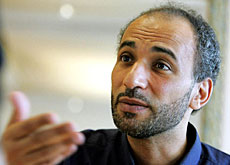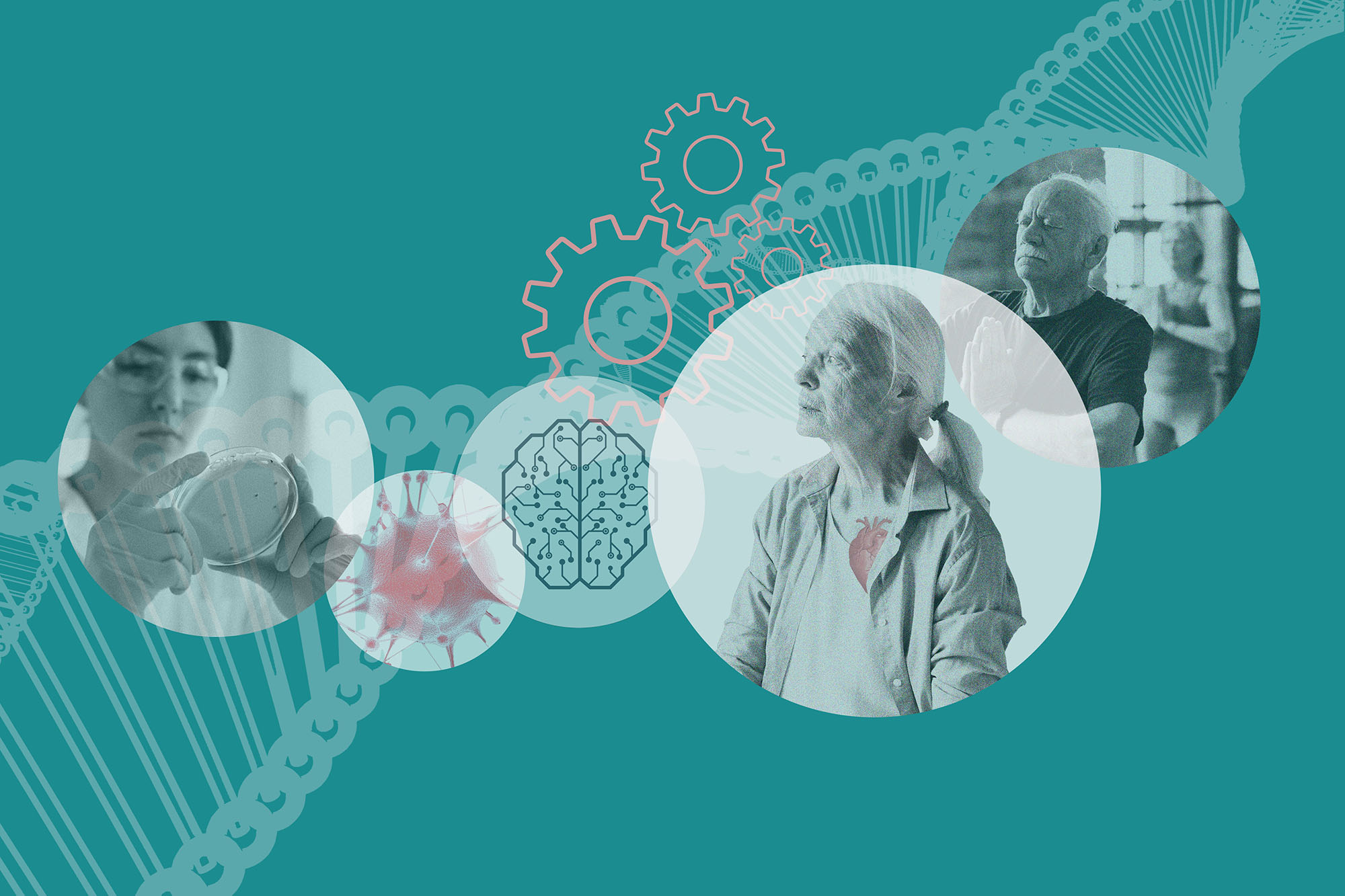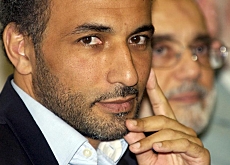Scholar says Muslims mistrust the West

Five years after the September 11 attacks, a leading Swiss expert on Islam says trust between Muslims and the West is at rock bottom.
In an interview with swissinfo, Tariq Ramadan says the solidarity shown by many Muslims in the wake of the terrorist atrocities has been undermined by events in Iraq and Lebanon, and by negative perceptions of Islam in the West.
Ramadan, who is a professor of Islamic studies, is currently working as a senior research fellow at St Anthony’s College, Oxford University, and at the Lokahi Foundation in London. He has published more than 20 books on Islam.
In the wake of the London bombings, he was appointed to a British government task force set up to combat Islamic radicalisation and extremism.
swissinfo: How do Muslims feel about September 11?
Tariq Ramadan: I think the great majority of Muslim people around the world expressed their condemnation of what happened. The feeling is that it was not Islamic and was against our values. But there is a very deep lack of trust because of what happened afterwards at a global level.
Plus there is the reality of Western security policy and the way Muslims feel they are treated or targeted. So the overall perception of the consequences of 9/11 is quite negative.
swissinfo: So five years on, you would describe the relationship between Islam and the West as one of deep mistrust?
T.R.: Yes. There is still this perception in the West that Islam is a potential threat, not only the extremists and radicals but Muslims in general. What showed us the reality of this was the whole business surrounding the [Mohammed] caricatures, with on one side the West saying Muslims are against its values and freedom of speech and on the other Muslims saying the West is against Islam. Some Muslim leaders are also playing a negative role in that sense.
swissinfo: After September 11 there were multiple calls for better understanding between the two camps. Five years on, have we really made no progress at all?
T.R.: I think the situation is problematic. Over the past five years there have been many people saying we need more mutual understanding, but since September 11 events around the world have conspired against this. At the end of the day people are heavily influenced by US policy, and the silence and disunity among European governments.
Muslims hear the West talking about democracy and human rights, yet they see that intervention in Iraq and Afghanistan has not brought democracy and that people are not being treated in a dignified way. On top of this, Muslim countries believe Israel was effectively given the green light to kill civilians in Lebanon for more than five weeks.
To this list needs to be added what is going on in Europe and the United States regarding security policy, immigration and the recent confirmation of extraordinary renditions.
swissinfo: Is there any difference between Europe and the United States in the minds of most Muslims?
T.R.: Yes. The current US administration under Bush is perceived as untrustworthy and merely acting in favour of specific interests. Europe is seen as having the potential to be different but instead follows the lead set by the US. After [their opposition to] the war in Iraq, there had been hope that some European governments might show another face. But the war in Lebanon showed that little can be expected from Europe and that it is not courageous enough to take a stand on the Arab side.
swissinfo: What should the West be doing to change this negative perception?
T.R.: I think it’s a question of consistency. You cannot say on the one hand that you are promoting democracy when on the other you are dealing with dictatorships who support your interests or are not stopping a war [Lebanon] that is killing innocent people.
Also this continuous discourse on the impossibility of integration is pushing Muslims to the margins of society. In Europe and the United States we still present Islam as something that is alien, as if we don’t have shared values and cannot live together.
swissinfo-interview: Adam Beaumont
Ramadan has an MA in philosophy and French literature and a PhD in Arabic and Islamic studies from Geneva University.
He is currently working at St Anthony’s College, Oxford University, and the Lokahi Foundation in London.
He is president of the Brussels-based think tank, European Muslim Network.
Tariq Ramadan is the grandson of Hassan-al Banna, who founded the prominent Islamic movement, the Muslim Brotherhood, in 1928.
Two years ago he was barred by the US authorities from taking up a post at Notre Dame University in Indiana. Officials cited security concerns but the Geneva-born scholar claims it was for “ideological reasons”.
Ramadan, who lives in London, says he is trying “to build bridges between two worlds that don’t know each other very well”.
Accused of supporting attacks in Israel and Iraq, Ramadan has publicly condemned the September 11 and London attacks and says he is against the taking of innocent life.

In compliance with the JTI standards
More: SWI swissinfo.ch certified by the Journalism Trust Initiative










You can find an overview of ongoing debates with our journalists here . Please join us!
If you want to start a conversation about a topic raised in this article or want to report factual errors, email us at english@swissinfo.ch.